Electro Static Loudspeaker, New Design
In brief:
In january 2019 it turned out that some of the Solosound ESL modules had some damage. Not suprisingly, they are over 30 years old.
So I decided to start a project to construct new ESL tweeters.
This is a project in itself and will take many months.
The Stators:
I have a construction in mind very similar to the Solosound modules but with one module covering the whole area.
A board size of 200 x 150 mm is beyond the capabilities of my Eagle licence, but I gave it a try with the feeling that the limitations might only apply to placing components.
And indeed, I can make a single layer board of 200 x 200 mm with only holes and copper pour. The schematic is empty because there are no components.
I defined a hole with drill 157 mil = 3.988 mm and a cirle of 200 mil = 5.08 mm in layer 41, tRestrict for the solder mask.
The area inside the red dotted outline will be the copper plane.
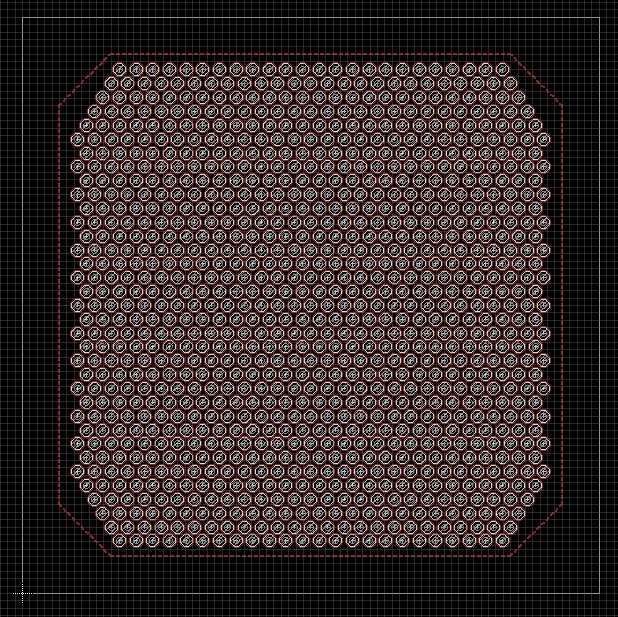
Screenshot from Eagle brd. Square layout.
This layout has an "openness" of nearly 0.5
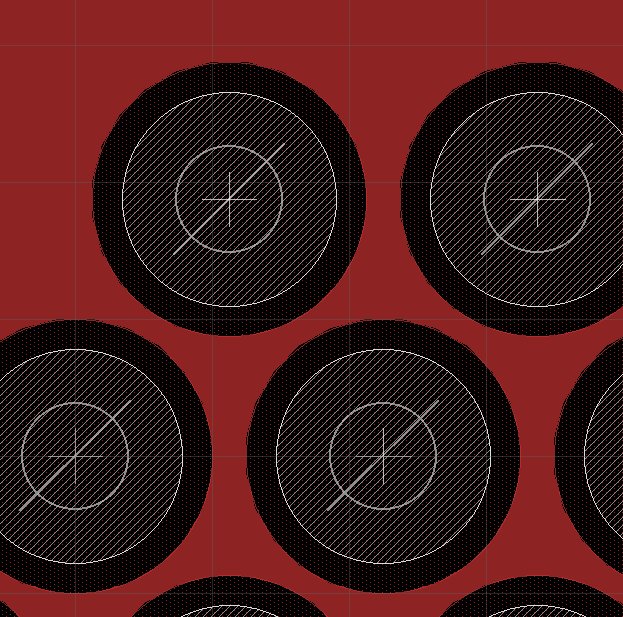
Detail showing the holes and the copper area.
The copper stops at 0.5 mm from the edge of the hole.
The solder mask will cover the board upto the edge of the holes, and so functions as an insulator, the same way the laquer does on the Solosound boards.
I have to find out whether this is sufficient or whether more insulation is required.
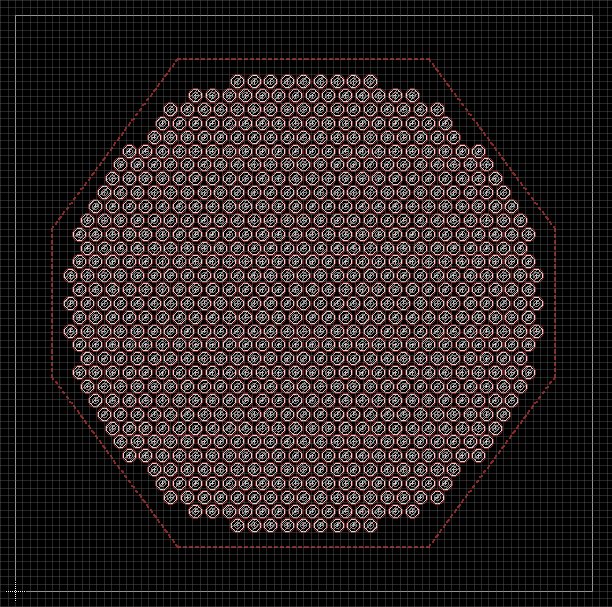
Circular layout. Screenshot from Eagle brd.
Simulation of the Electric Field.
With FEMM (Finite Element Method Magnetic, but it does electric fields too) I made a simulation of the electric field near one of the holes.
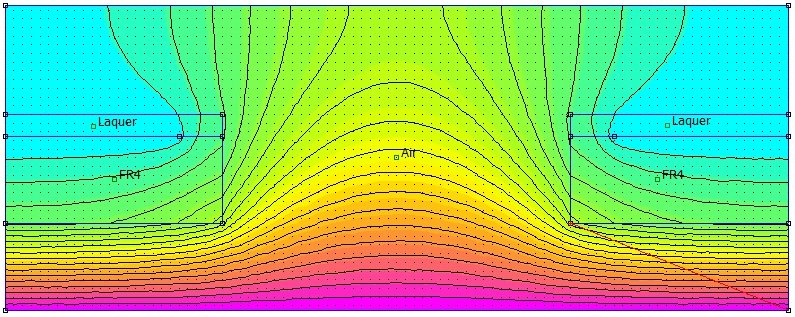
Simulation of field strength.
We see a cross section throug a 4 mm wide hole. At the bottom sits the Membrane, modelled as a conductor on 5000 Volts. 1mm higher is the FR4 material of the stator, (εr = 4.4) also 1 mm thick. The copper at 0 Volts is under the laquer layer (εr = 3) and approaches the hole to 0.5 mm.
We can see that in the vicinity of the membrane the fieldstrength is fairly constant. Also, no regions exhibit extreme field gradients which might lead to sparking.
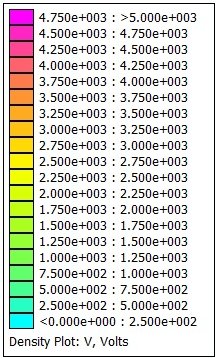
Legend for the field strength.
The membrane:
A new Transformer?
A new High Voltage unit?